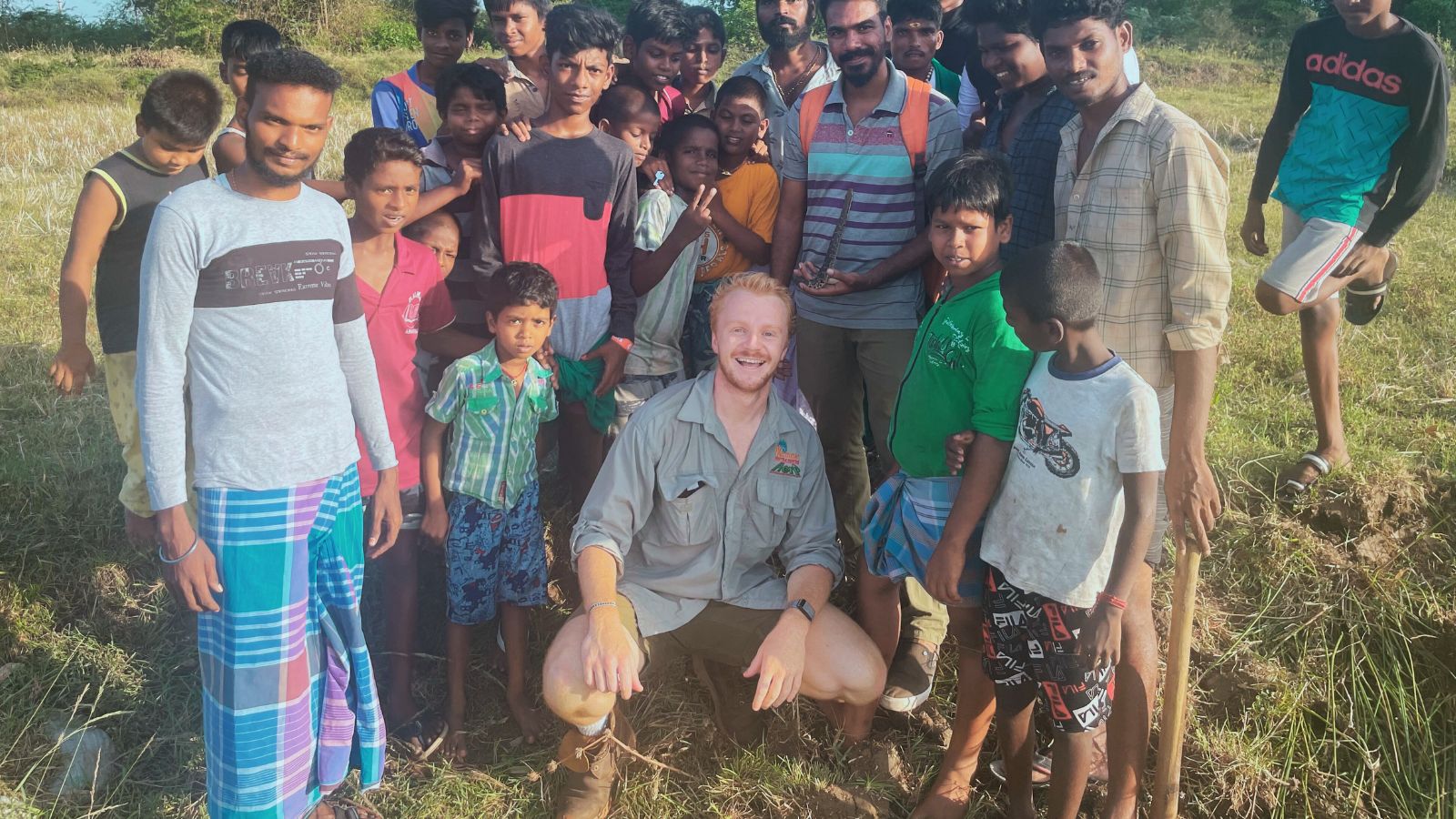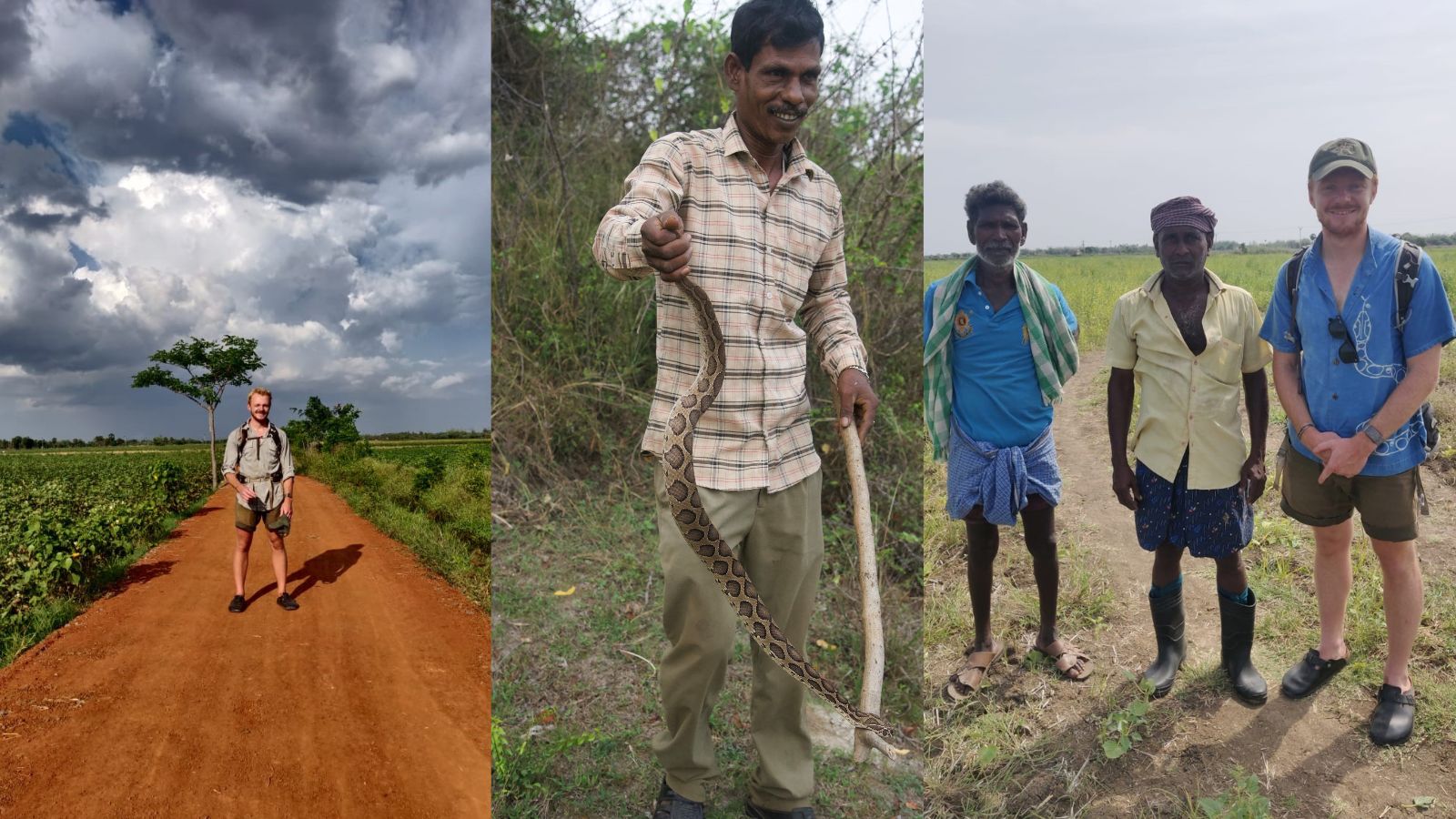
LMH and WildCRU graduate student Harrison Carter (2023, DPhil Biology) recently published his first academic paper in the journal Conservation Science and Practice. Harrison’s research is focused on human-wildlife coexistence, and his paper uncovers simple yet effective measures to prevent snakebite deaths.
Approximately 140,000 snakebite deaths are recorded annually worldwide, with an additional 400,000 people per year left with permanent disabilities. Recognising the gravity of the issue, the World Health Organization has committed to halving snakebite deaths and related injuries by 2030, classifying snakebites as a neglected tropical disease.
Harrison's research specifically delves into snakebite prevention in Tamil Nadu, a region estimated to account for 20% of all snakebite deaths in India. Engaging with the local population, the study revealed that 69% of people take daily measures to prevent snakebites. However, these measures often diverge from evidence-based advice.
The key findings indicate that promoting locally practical prevention methods, aligned with scientific understanding, could significantly reduce snakebite-related fatalities. The study also suggests that such an approach could contribute to a decrease in the number of snakes killed out of fear.
Harrison notes, "While this study is rooted in Southern India, the circumstances surrounding snakebites are generally similar across tropical regions. We hope that the lessons learned can be widely applied, and the interdisciplinary methods employed in the paper can be adapted and developed elsewhere".
In terms of his wider research, Harrison aspires to help bridge the gap between humans and nature. For his DPhil, he wants to explore the potential of novel financial products, such as nature bonds and credits, to foster harmonious human-wildlife coexistence.
"I am incredibly excited to delve into the literature and explore the potential for these products to deliver tangible impacts. If conservation is our vehicle to reverse the effects of biodiversity loss, funding becomes the fuel for measurable impacts. I expect this journey to extend beyond my DPhil years, especially as interest in this space is beginning to spike," Harrison shares.
You can read Harrison’s article, Venomous snakebites: Exploring social barriers and opportunities for the adoption of prevention measures, via the link below.
For updates on Harrison's research, you can head to his website or follow him on Instagram, X (formerly Twitter) or LinkedIn.
